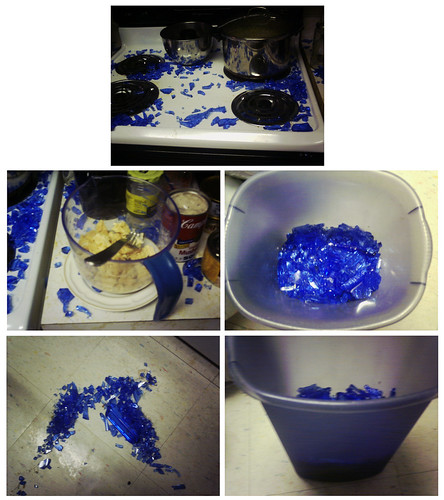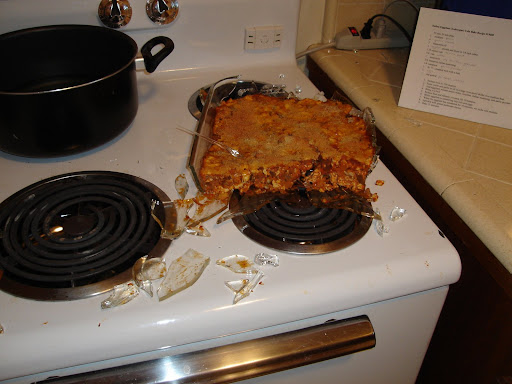


Food seems to go hand in hand with the holiday season, but some cooks using recently purchased glass Pyrex baking dishes have reported nasty surprises.
The dishes mostly the 13-by-9-inch baking dish have shattered unexpectedly.I looked this up on the Internet, and it appears quite common. In fact, no heat or cold seems to be necessary for Pyrex to explode. One person merely removed the Pyrex dish from the cabinet and it exploded in her hand. Another person had one explode brand new - upon removing it from the box. There are dozens and dozens of incidents at consumeraffairs.com and complaints.com.
Pyrex was developed as a tempered glass product by Corning Glass Works in 1924. Known as a "borosilicate" glass, it contains boron as well as the glass makers usual mix of sand, soda and lime. The boron makes the glass less likely to expand during changes in temperature. When it does break, scientists say it should crack into large pieces rather than shatter.
Over the years, Pyrex cookware has become a fixture in the kitchen. Many cooks say the Pyrex pie plate is the standard pie dish. Pyrex measuring cups are also widely used.
So why the problems?
Over the years, Pyrex cookware has become a fixture in the kitchen. Many cooks say the Pyrex pie plate is the standard pie dish. Pyrex measuring cups are also widely used.
So why the problems?
Scientists accustomed to using Pyrex test tubes and beakers in the laboratory say the glass can weaken with age and use. If small cracks develop over time, it can make the glass expand and contract in temperature extremes. But in the case of some consumers writing to ConsumerAffairs.com, the dishes were new, or at least fairly new.
Corning spun off its kitchenware's division in the 1990s, so Pyrex is now owned by World Kitchen, which also owns CorningWare. World Kitchen provides a two-year guarantee on its Pyrex products.
"World Kitchen, Inc. promises to replace any Pyrex brand glass item that breaks from oven heat within two years from date of purchase," the company says on its Website.
Corning spun off its kitchenware's division in the 1990s, so Pyrex is now owned by World Kitchen, which also owns CorningWare. World Kitchen provides a two-year guarantee on its Pyrex products.
"World Kitchen, Inc. promises to replace any Pyrex brand glass item that breaks from oven heat within two years from date of purchase," the company says on its Website.
However, there are certain conditions. World Kitchens advises consumers to never use Pyrex products on stove tops, under a broiler, or in a toaster oven. Consumers are also told to avoid "severe" hot to cold temperature changes. Cooks, who in the past found that Pyrex was durable enough to allow some latitude from those conditions, are apparently finding that now, any deviation is risky business.
So how safe are you when you use Pyrex baking ware?????

1 comment:
Sounds like safety glasses should be worn around that stuff!! Im going to keep using it though.
Post a Comment